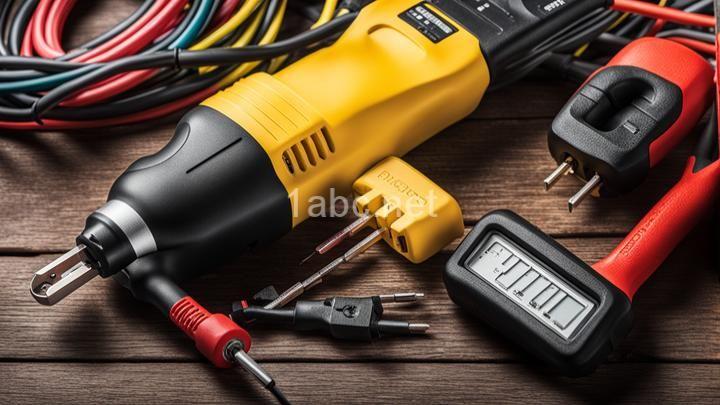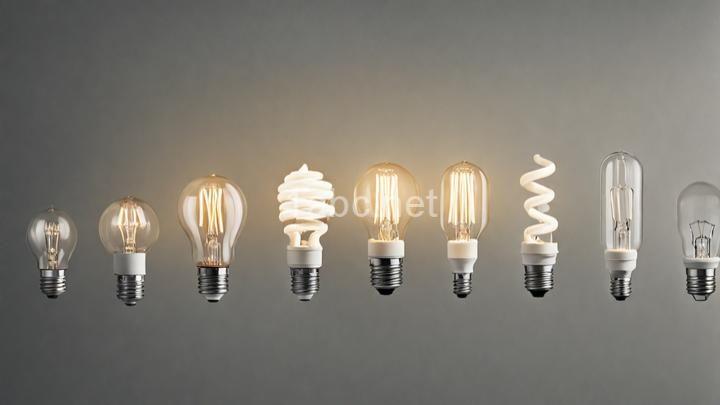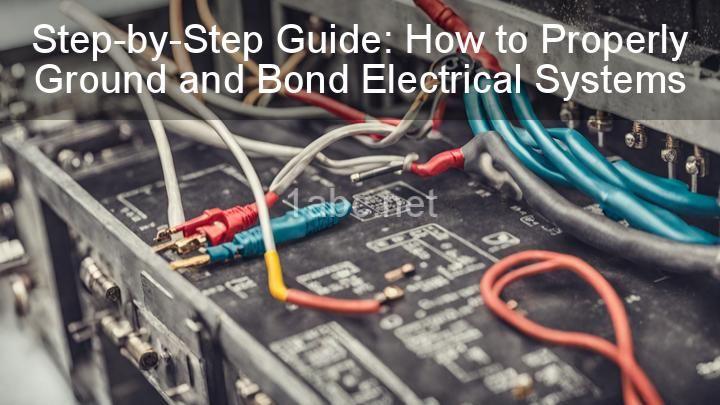10 Essential Electrical Safety Tips for Every Homeowner
Introduction:
I.
Tip 1: Understand Your Electrical System
II.
Tip 2: Avoid Overloading Outlets
III.
Tip 3: Regularly Inspect Cords and Wires
IV.
Tip 4: Use Ground Fault Circuit Interrupters (GFCIs)
V.
Tip 5: Keep Water Away from Electricity
VI.
Tip 6: Be Mindful of Extension Cord Usage
VII.
Tip 7: Childproof Electrical Outlets
VIII.
Tip 8: Hire a Professional for Electrical Work
IX.
Tip 9: Use Surge Protectors
X.
Tip 10: Educate Yourself on Emergency Procedures
Conclusion:

Introduction:
Hey there, homeowners! We know that owning a home comes with its fair share of responsibilities, and one of the most important ones is ensuring the safety of your electrical system. Electricity is an essential part of our daily lives, but if not handled properly, it can pose serious hazards. That's why we're here to share with you 10 essential electrical safety tips that every homeowner should know. So, let's dive in and discover how you can keep your home safe and sound!
I.
Tip 1: Understand Your Electrical System
Before we get into the nitty-gritty of electrical safety, it's crucial to familiarize yourself with your home's electrical system. Knowing where your electrical panel is located and understanding how it works will give you a head start in maintaining a safe environment. Take the time to identify the circuit breakers and their functions, so you can easily locate and address any issues that may arise.
II.
Tip 2: Avoid Overloading Outlets
Did you know that overloading outlets is one of the leading causes of electrical fires? Yup, it's true! So, it's important to be mindful of how much power each outlet can handle. To calculate a safe load capacity, you can refer to the amperage rating of the circuit breaker. And if you find yourself in need of extra outlets, opt for power strips or surge protectors instead of relying on multiple extension cords.
III.
Tip 3: Regularly Inspect Cords and Wires
Cords and wires are like the lifelines of your electrical devices, and they deserve some extra attention. Make it a habit to inspect them regularly for any signs of wear, fraying, or exposed wiring. If you notice any damage, don't procrastinate—replace the cord or wire right away. It's a small step that can prevent big problems down the line.
IV.
Tip 4: Use Ground Fault Circuit Interrupters (GFCIs)
Ground Fault Circuit Interrupters, or GFCIs for short, are like your home's guardian angels when it comes to electrical safety. These devices protect against electrical shock by monitoring the flow of electricity and immediately cutting power if they detect a ground fault. Install GFCIs in areas prone to moisture, such as kitchens, bathrooms, and outdoor outlets, and don't forget to test them periodically to ensure they're in good working order.
V.
Tip 5: Keep Water Away from Electricity
Water and electricity are not the best of friends—in fact, they're downright dangerous together. So, it's crucial to be cautious when using electrical appliances near water sources. Make sure your hands are dry, and never touch an electrical device with wet hands. And remember, wet surfaces and electronics should always stay far apart to avoid any unwanted sparks.
VI.
Tip 6: Be Mindful of Extension Cord Usage
Extension cords are a convenient solution when you need some extra reach, but they're not meant to be a permanent fix. When using extension cords, be sure to follow some guidelines to keep things safe. Select the right extension cord based on the wattage needs of your devices, and don't overload them. And remember, if you find yourself relying heavily on extension cords, it may be time to consider adding more outlets to your home.
VII.
Tip 7: Childproof Electrical Outlets
If you have little ones running around, it's essential to take extra precautions to childproof your electrical outlets. Children are naturally curious, and those little fingers can easily find their way into outlets. Invest in outlet covers or safety solutions that prevent accidental contact with live electrical components. And don't forget to educate your children about the dangers of electricity and the importance of staying away from outlets.
VIII.
Tip 8: Hire a Professional for Electrical Work
While we applaud your DIY spirit, electrical work is not something to dabble in unless you're a licensed electrician. The risks involved are simply too high. When it comes to installations or repairs, it's always best to hire a professional who knows the ins and outs of electrical systems. They'll ensure that everything is up to code and, most importantly, safe. And don't forget to obtain any necessary permits for electrical projects to stay on the right side of the law.
IX.
Tip 9: Use Surge Protectors
We live in a world filled with electronics, and protecting them from power surges is crucial. That's where surge protectors come into play. These handy devices safeguard your appliances by diverting excess voltage away from them. Install surge protectors in areas with sensitive electronics, such as your home theater or office space. And for added protection, you may even consider investing in whole-house surge protection systems.
X.
Tip 10: Educate Yourself on Emergency Procedures
Last but certainly not least, it's essential to be prepared for electrical emergencies. Knowing how to respond to electrical fires or shocks can make all the difference in keeping yourself and your loved ones safe. Familiarize yourself with emergency procedures, such as how to use a fire extinguisher or perform CPR. Keep emergency contact numbers readily available, and don't hesitate to reach out for help when needed.
Conclusion:
Congratulations, homeowners! You've made it through our list of 10 essential electrical safety tips. By implementing these practices, you're taking a proactive approach to keeping your home safe from electrical hazards. Remember, electrical safety is not something to be taken lightly. It's all about being aware, taking precautions, and seeking professional help when needed.
We hope that this blog post has provided you with valuable information and insights. If you have any questions or if you'd like to share your own experiences, we'd love to hear from you in the comments section below. Stay safe, stay informed, and may your home always be filled with the warm glow of good electrical practices!
FREQUENTLY ASKED QUESTIONS
What are the most important electrical safety tips for homeowners?
When it comes to electrical safety in your home, there are several important tips to keep in mind. Here are some of the most crucial ones:
-
Regularly check your electrical cords and outlets: Inspect your cords for any fraying, cracks, or damage, and replace them if necessary. Also, ensure that your outlets are not overloaded with too many plugs.
-
Use surge protectors: Invest in surge protectors for your electronic devices and appliances to protect them from power surges. This can help prevent damage to your devices and reduce the risk of electrical fires.
-
Keep water away from electrical sources: Water and electricity do not mix! Avoid using electrical devices near water, such as in the bathroom or kitchen. Also, make sure your hands are dry before handling any electrical appliances.
-
Install ground fault circuit interrupters (GFCIs): GFCIs are designed to quickly shut off power in the event of a ground fault. Install them in areas where water is present, such as bathrooms, kitchens, and outdoor outlets.
-
Be cautious with portable heaters: If you use portable heaters during the colder months, make sure to keep them at least three feet away from flammable objects, such as curtains or furniture. Always turn them off and unplug them when not in use.
-
Hire a professional for electrical work: Avoid DIY electrical projects unless you have the necessary knowledge and experience. It's best to hire a qualified electrician for any electrical installations, repairs, or upgrades to ensure safety.
Remember, electrical safety is essential for the well-being of you and your family. By following these tips, you can reduce the risk of electrical accidents and create a safer home environment.
How can I prevent electrical accidents in my home?
To prevent electrical accidents in your home, there are several precautions you can take. First and foremost, make sure to regularly inspect all electrical cords and outlets for any signs of damage, such as frayed wires or loose connections. If you notice any issues, it's best to replace or repair them immediately.Another important step is to avoid overloading your electrical outlets. Using too many devices on one outlet can lead to overheating and potential fire hazards. Spread out your devices and consider using power strips with surge protectors to safely accommodate multiple appliances.
It's also essential to keep water away from electrical appliances and outlets. Ensure that your hands are dry before touching any electrical equipment, and never use electrical devices near water sources such as sinks or bathtubs.
Installing ground fault circuit interrupters (GFCIs) in areas where water is present, such as kitchens and bathrooms, is highly recommended. GFCIs can detect electrical faults and quickly shut off the power to prevent electric shocks.
Regularly checking and maintaining your home's electrical system is crucial. If you're unsure about the condition of your electrical wiring or if you experience recurring electrical issues, it's best to consult a qualified electrician who can assess and address any potential hazards.
Lastly, it's always wise to have working smoke detectors and fire extinguishers in your home. These essential safety devices can provide early warning and help you respond quickly to any electrical fires.
By following these preventive measures, you can significantly reduce the risk of electrical accidents in your home and ensure the safety of yourself and your loved ones.
What should I do if I experience an electrical shock?
If you ever experience an electrical shock, it's important to take immediate action to ensure your safety. Here are the steps you should follow:
-
Disconnect from the source: The first thing you need to do is remove yourself from the source of the electrical shock. If you can, turn off the power supply or unplug the appliance causing the shock. Do not touch the person experiencing the shock until you're sure the power is off.
-
Check for responsiveness: Once the power is off, check if the person is conscious and responsive. If they are not responding, call for emergency medical help right away.
-
Perform CPR if necessary: If the person is unresponsive and not breathing, you may need to perform CPR (Cardiopulmonary Resuscitation). If you are trained in CPR, begin chest compressions and rescue breathing until medical help arrives. If you're unsure about CPR, follow the instructions given by the emergency operator.
-
Seek medical attention: Even if the person appears to be fine after an electrical shock, it's crucial to seek medical attention. Electrical shocks can cause internal injuries that may not be immediately apparent. A medical professional can assess the situation and provide any necessary treatment.
Remember, electrical shocks can be extremely dangerous, so it's always better to err on the side of caution and seek medical help. It's also important to take precautions to prevent electrical shocks in the first place, such as using grounded electrical outlets, avoiding water near electrical devices, and having a professional inspect any faulty wiring. Stay safe!
How often should I have my home's electrical system inspected?
It is recommended to have your home's electrical system inspected at least once every five to ten years. However, if you notice any signs of electrical issues such as flickering lights, frequent circuit breaker trips, or burnt smells, it is important to have it inspected immediately. Regular inspections can help identify potential hazards and ensure the safety and efficiency of your electrical system. It is always better to be proactive and address any electrical concerns before they become major problems.



